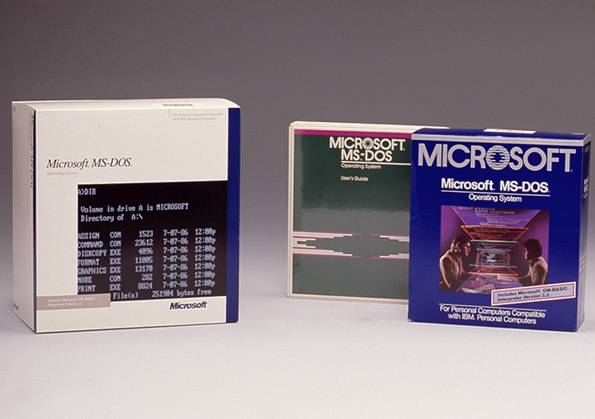| Microsoft Opens MS-DOS Code |
| Written by Historian | |||
| Monday, 31 March 2014 | |||
|
Microsoft has made the source code for early versions of MS-DOS and Word for Windows available in the Computer History Museum which already has a range of significant software programs in its collection. In a blog post, Roy Levin, managing director of Microsoft Research Silicon Valley, said: “The museum has done an excellent job of curating some of the most significant historical software programs in computing history. As part of this ongoing project, the museum will make available two of the most widely used software programs of the 1980’s, MS DOS 1.1 and 2.0 and Microsoft Word for Windows 1.1a, to help future generations of technologists better understand the roots of personal computing.”
The blog post recounts how IBM approached Microsoft in 1980 to work on an operating system for the IBM PC. Famously, (though the blog post doesn’t mention this), Microsoft got the contract after Digital Research and IBM couldn’t agree terms on IBM using CP/M on the new machine. If you don't know the back story see our history article about Gary Kildall and this short account of how Microsoft was awarded the contract to write MS-DOS. As the blog post does explain: “Without their own on hand, Microsoft licensed an operating system from Seattle Computer Products which would become the foundation for PC-DOS and MS-DOS.” Len Shustek, Computer History Museum Chairman, said: "Version 1.1 fits an entire operating system – limited as it was – into only 12K bytes of memory, which is tiny compared to today's software." At the time of MS-DOS, Microsoft had fewer than 100 employees and MS-DOS, as well as being only 12K as a runtime, had less than 300KB of source code. Word for MS-DOS was very much an also-ran in the word processor stakes, being inferior to both WordStar and WordPerfect, so Word for Windows is the version Microsoft has made available for the museum. The blog post explains: “within four years it was generating over half the revenue of the worldwide word-processing market. Word for Windows was a remarkable engineering and marketing achievement, and we are happy to provide its source code to the museum.” You can download the source code of these two historic products from the Computer History Museum. Other releases in the historic source code collection include APPLE II DOS, IBM APL, Apple Macpaint and QuickDraw, and Adobe Photoshop.
More InformationMicrosoft makes source code for MS-DOS and Word for Windows available to public Download Windows 1.1a source code Download Microsoft DOS V1.1 and V2.0 Source Code Related Articles30 years ago - Microsoft signs contract with IBM to create MS-DOS Gary Kildall - CP/M, Digital Research and GEM
To be informed about new articles on I Programmer, sign up for our weekly newsletter, subscribe to the RSS feed and follow us on Twitter, Facebook or Linkedin.
Comments
or email your comment to: comments@i-programmer.info |
|||
| Last Updated ( Tuesday, 09 October 2018 ) |


